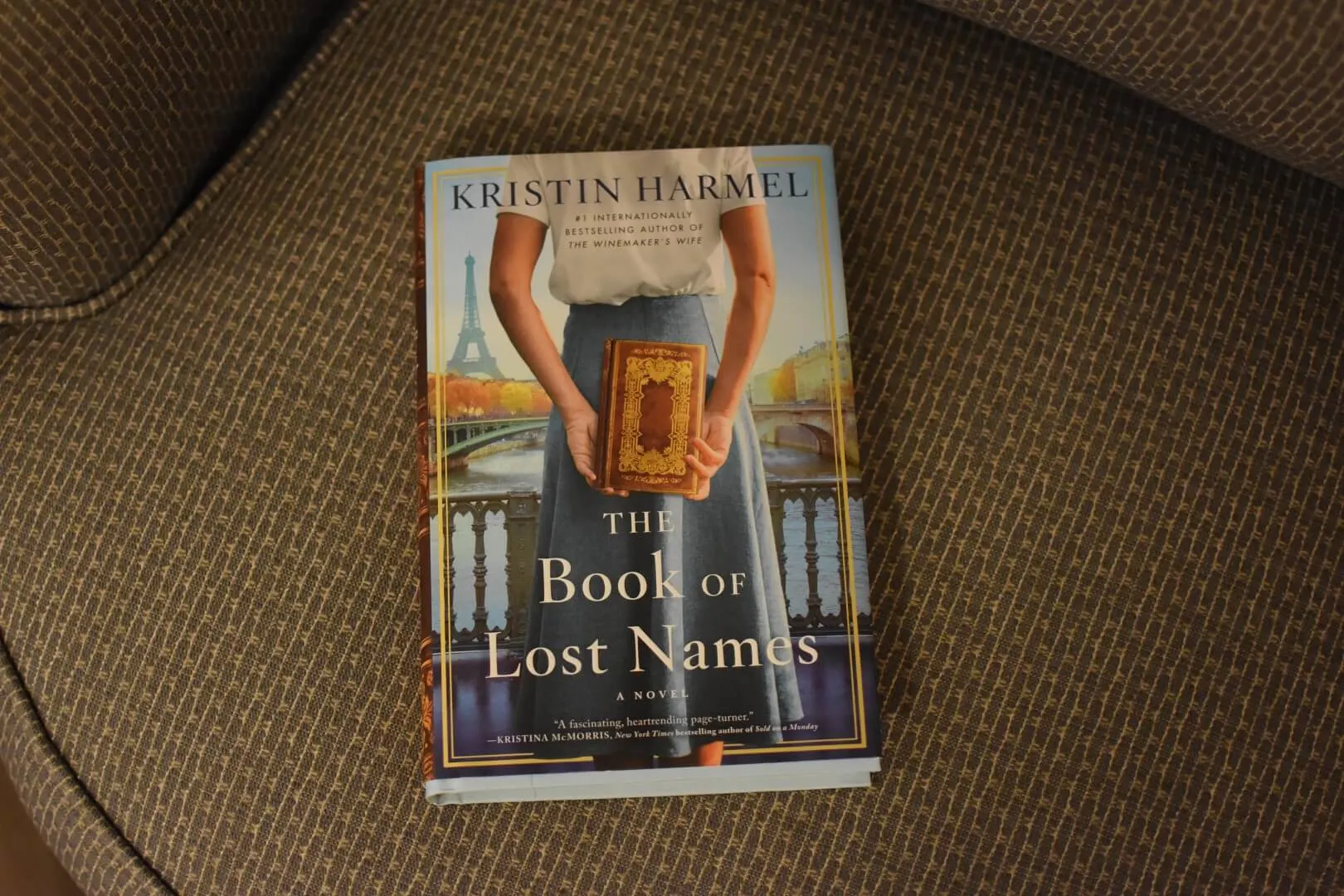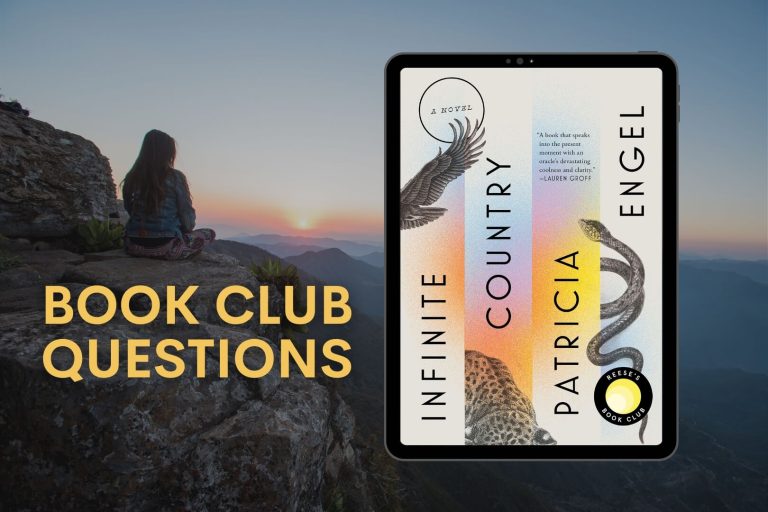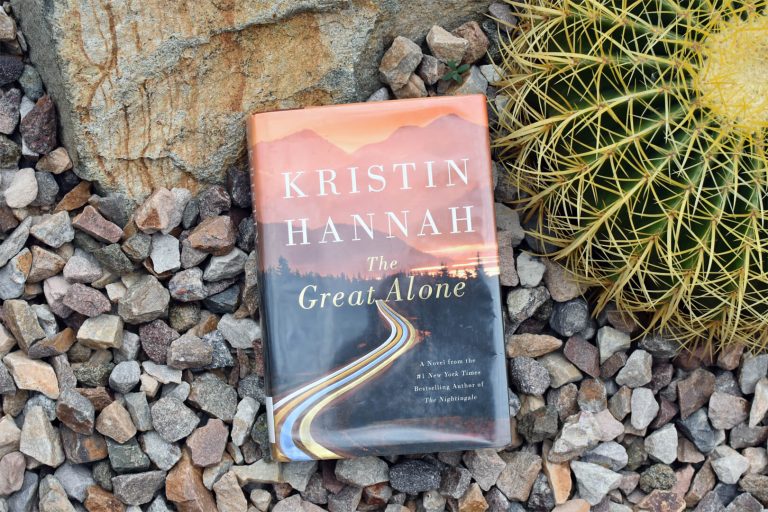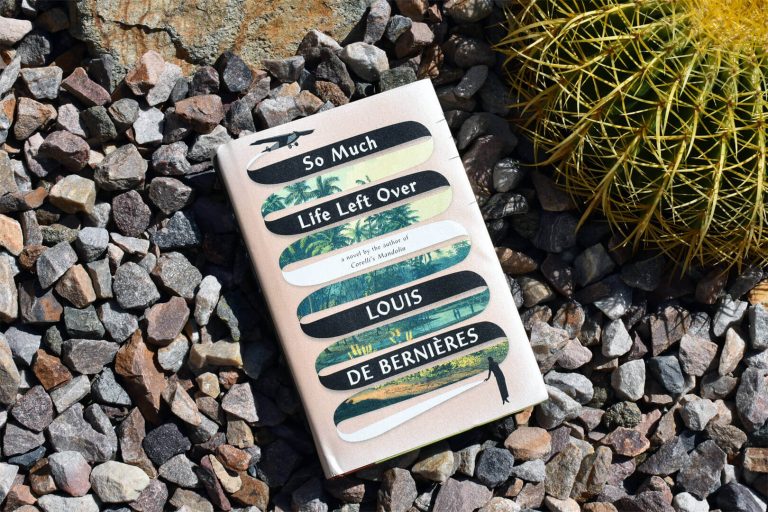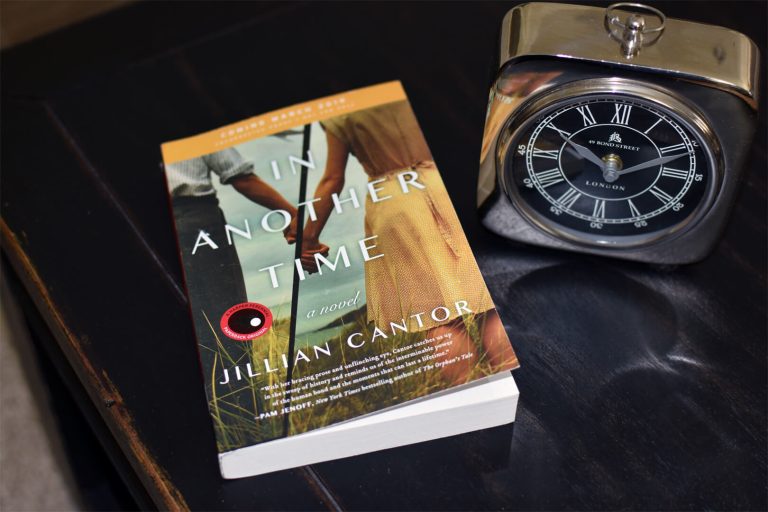Editorial note: I received a copy of The Book of Lost Names in exchange for a review.
Historical fiction is one of my favorite genres! If you haven’t read it yet, be sure to check out this great list of historical fiction recommendations that I co-wrote with one of my favorite book friends, Cindy Burnett. And be sure to subscribe to her book podcast too! We’re talking about co-writing another list post together so keep an eye out for that.
The Book of Lost Names by Kristin Harmel is such a well-written historical fiction novel. I was so engrossed in the story that I read it one sitting. I highly recommend this one. It’s actually been a while since I’ve read a historical fiction novel too. And this was such a great one to pick up.
The synopsis
Eva Traube Abrams, a semi-retired librarian in Florida, is shelving books one morning when her eyes lock on a photograph in a magazine lying open nearby. She freezes; it’s an image of a book she hasn’t seen in sixty-five years—a book she recognizes as The Book of Lost Names.
The accompanying article discusses the looting of libraries by the Nazis across Europe during World War II—an experience Eva remembers well—and the search to reunite people with the texts taken from them so long ago. The book in the photograph, an eighteenth-century religious text thought to have been taken from France in the waning days of the war, is one of the most fascinating cases. Now housed in Berlin’s Zentral- und Landesbibliothek library, it appears to contain some sort of code, but researchers don’t know where it came from—or what the code means. Only Eva holds the answer—but will she have the strength to revisit old memories and help reunite those lost during the war?
As a graduate student in 1942, Eva was forced to flee Paris after the arrest of her father, a Polish Jew. Finding refuge in a small mountain town in the Free Zone, she begins forging identity documents for Jewish children fleeing to neutral Switzerland. But erasing people comes with a price, and along with a mysterious, handsome forger named Rémy, Eva decides she must find a way to preserve the real names of the children who are too young to remember who they really are. The records they keep in The Book of Lost Names will become even more vital when the resistance cell they work for is betrayed and Rémy disappears.
Historical details
I always say this but one of the best aspects of historical fiction is learning something new! That is something that really makes this genre stand apart from others. In this case, the author Kristin Harmel was inspired by real-life document forgers for the Resistance in France during the war. Here’s what she told me in her Q&A:
Now that I’m primarily writing about World War II, I draw most of my inspiration from research; I really enjoy stumbling upon stories I haven’t heard before. For example, The Book of Lost Names is about document forgers for the Resistance in France during the war. I’ve read a ton about the Resistance, but I hadn’t spent much time thinking about where all of the millions of false documents that allowed Jews, pilots, Resistance fighters, and others to escape had actually come from. So I began to dig into it, and I realized immediately that it would be a great basis for a novel. Once I have that sort of fascinating historical story to frame a novel around, I set to work creating characters who make sense in that landscape.
I was so fascinated by the story of these forgers—I didn’t know anything about it until I read this story. You can tell Kristin did plenty of research (which she details in the Q&A) as the details are so vivid.
The story
Eva is a very compelling protagonist and you root for her in every step of her journey. She has so much courage throughout the story and grows quite a bit. There is a romance in this one that is a bit understated compared to others in the genre and I really liked how it was handled. But by far, the most engaging parts are dedicated to the document forgers.
WWII historical fiction will always have an important place in the book world. This is one of this novels that will stick with you long after you finish the last page. Check out my book club questions here.
